
Aug '08 - Dec '10
This summer I participated in the 2009 China-Lab Summer Workshop in Beijing, China.
The project started as a continuation of ongoing megablock research, a concept that China-Lab has been researching for some time, but the work soon turned towards the study of informal spaces and material recycling in Beijing.
The recycling (or re-using, in most cases) system in Beijing is amazing. Like everything else in China, the work proceeds around the clock and is done mostly all by hand, with little automation.
There are laws for recycling in China, but there are no official recycling collections or collectors, as the money made from finding and returning bottles is so good that everyone does it. Recyclable material, including plastic bottles, televisions, scrap paper, lumber and cloth, pass through many hands on their way through the system- including individuals on bicycles, whole families that run collection services, kids trying to scrape up a few yuan and elderly citizens that always carry a plastic bag to put random bottles in. The process and participants are visible on every street.
There are small recycling businesses on every other block acting as the middle links of the recycling chain that stretches from consumer to recycling plant, buying small amounts of material from individual and casual collectors and then selling it to larger collectors. Further down the line, these larger collectors process the material into more manageable sizes and bundles- neatly stacking wood, dismantling machinery, shredding plastic bottles into small chips. The next stop is the recycling plants.
The research occurred over four weeks- we went to several urban typologies and neighborhoods and spoke to dozens of people, from casual collectors to business owners, consumers and whole families that get all of their income from finding material and selling it to someone else.
The end product, involving several small groups of students that also studied the everyday use of informal spaces in developing Beijing, is to be a large multi-faceted database. This database, made up of thousands of photographs, diagrams, videos of various length, interviews, maps and notes, is to be accessed through a unique database designed by us. The idea is to be able to enter the database through one topic and access any and all related topic of various media elsewhere in the database. Because we have several formats of media and many smaller specific topics, getting everything working together is the ongoing difficulty.
As questions are investigated through the database, small proposals for the problems and inefficiencies that we discovered are displayed. These several-dozen proposals detail various ideas such as the ideal recycling yard, credit unions for pedicab drivers, using recycled plastic bottles in new ways and street service stations for trash collectors.
My own contribution was primarily film. I shot a series of short documentary films about topics such as brick recycling and wholesale produce markets, and jointly handled the editing and formatting of other participants’ videos in order to fit them in the database.
When the database and interface are completed I will provide links.
Below are some pictures that tell of the rest of the trip.
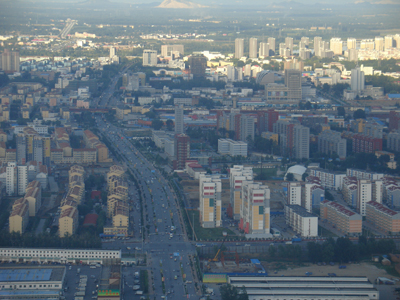

Ubiquitous swine flu checks.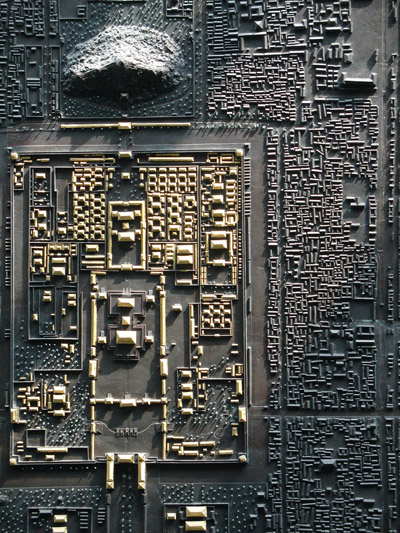
Bronze model of the old Imperial City in the Planning Museum.
Planning Museum's model of modern Beijing.
Forbidden City.
Linked Hybrid.
Linked Hybrid.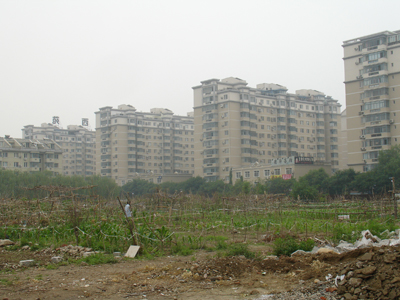
Informal space- urban farm.


Just another suggestion for the NYC MTA.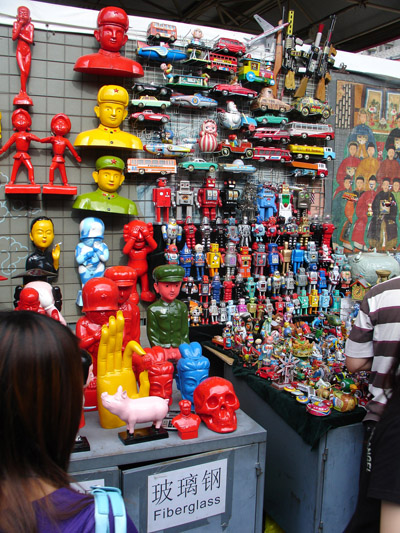
Communism sells.
These bricks used to be a village.
Restaurants on Ghost Street.
Almost all the produce in Beijing comes through Xinfadi Wholesale Market.
Solar water heating is everywhere.
Usual end to the day.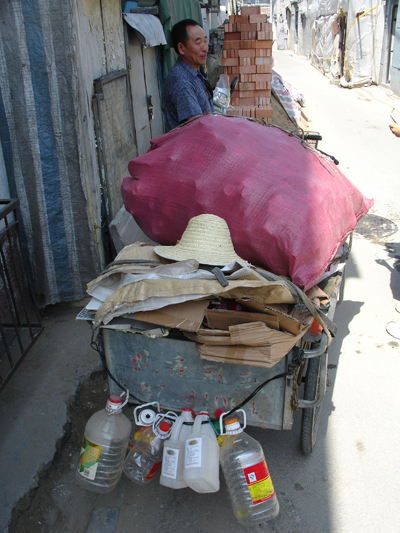
A collector and his tricycle cart.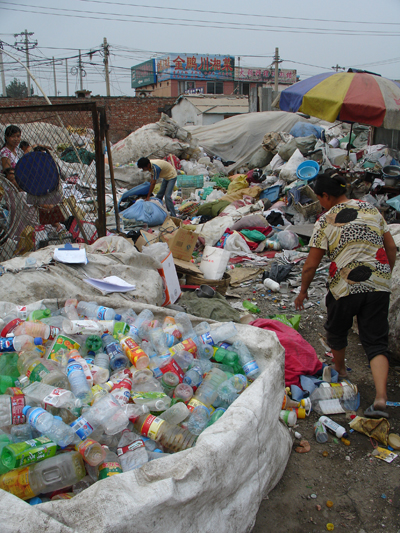
Donsangqi Recycling Village.
Bottles to be processed.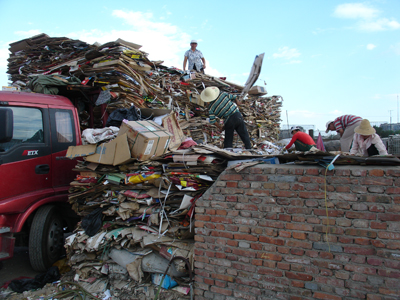
Packing cardboard onto the truck.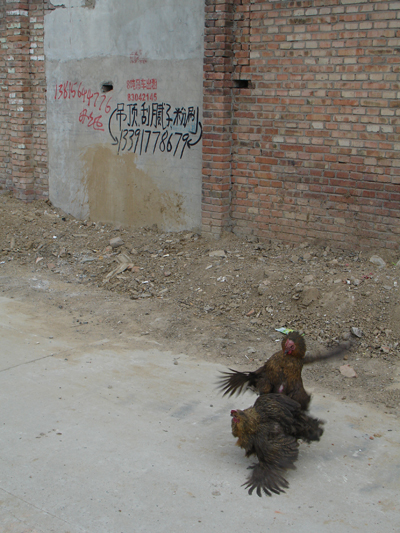
Village roosters.
Our trike broke often but was always up and running again quickly.
Flying Pigeon.
Studio-X Beijing, entrance.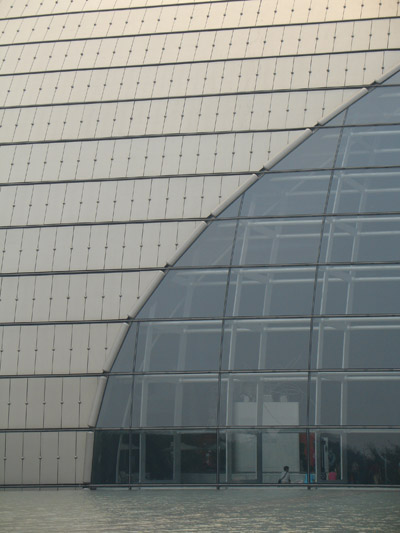
The National Theatre.
Inside the Bird's Nest.
Water Cube entrance.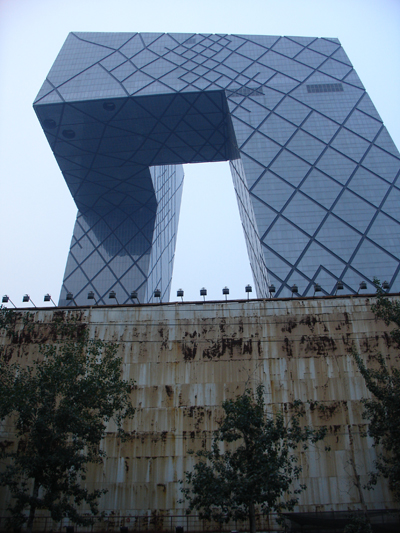
As close as we could get to CCTV.
Still burnt.
Yonghegong Lama Temple.
Final Review.
Video wall at the final review.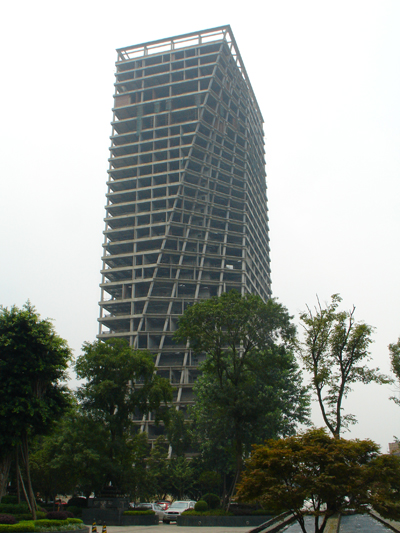
Chengdu is rapidly expanding. Buildings like this are a common sight.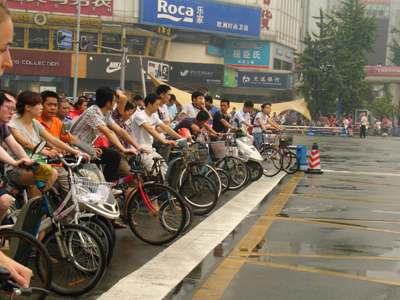
Chengdu has more bicycles than Beijing now.
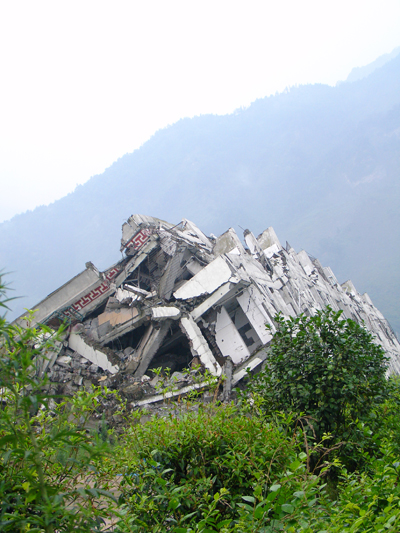
The Sichuan earthquake zone. This used to be a school.
The structural failures read just like my textbooks.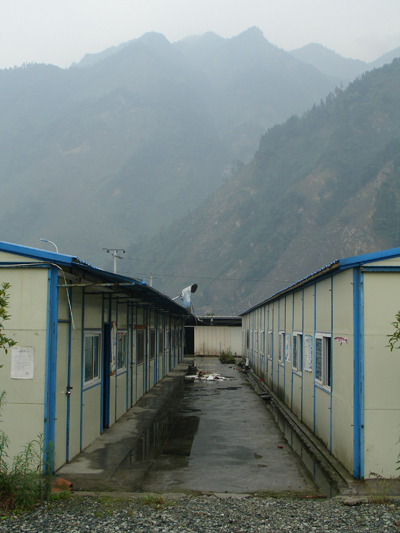
Chinese FEMA trailers, more or less.
This was the most depressing moment of my trip to China.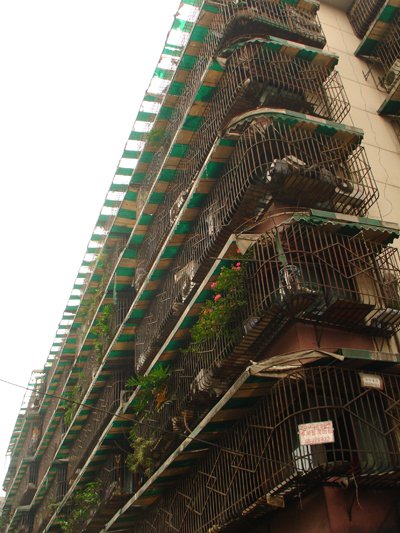
Chengdu workers housing.
Xian City Wall, 10km around.
Terracotta Warriors, Xian.
I love the old wooden roof joints. No nails. Great Mosque of Xian.
Factory stairs, Xian.
Giant Wild Goose Pagoda, Xian.
Lion Dance, Tang Paradise, Xian.



4 Comments
amazing photos!
agreed. thanks for the photos. nice to see the different views of the widely published projects.
great. like browsing trough my own pics from may this year. was there for a workshop at CAFA with a few ppl from my school (oslo school of architecture and design). tried to bribe the guards on the cctv site - no way - got the pics from the exact same spot. fucking architects with their cameras everywhere .)
cheers
Hana
Ha! Yes, we got hauled in by the cops for taking photos of garbage cans on day one. Things were easier once they realized we were students.
Block this user
Are you sure you want to block this user and hide all related comments throughout the site?
Archinect
This is your first comment on Archinect. Your comment will be visible once approved.